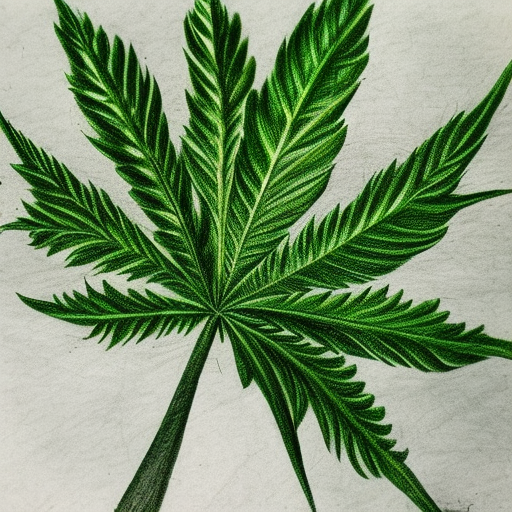
Recent scientific research has revealed that cannabidiol (CBD) may not have the ability to reduce the side effects associated with tetrahydrocannabinol (THC). The findings, which were published in the journal Addiction, indicate that CBD may play a more limited role than previously thought in reducing the adverse effects of THC.
CBD has become increasingly popular in recent years, with many people using it as an alternative form of therapeutic treatment for a variety of medical conditions. Many have suggested that CBD is able to counteract some of the more undesirable effects of THC, such as anxiety and paranoia. This has led to numerous studies being conducted in order to better understand the interaction between these two cannabinoids.
The recent Neuropsychopharmacology study investigating the effect of cannabidiol (CBD) on reducing adverse outcomes amongst cannabis users revealed that, despite the reported potential for CBD to lessen the effects of THC, no such protective properties were observed in this specific case.
A double-blind randomized trial was conducted with 46 healthy volunteers between 21 and 50 years of age, all of whom had used cannabis at least once, but not more than once a week during the last year, and who had not developed a substance use disorder or used synthetic cannabinoids. Participants were administered 10 mg THC alongside either 0, 10, 20 or 30 mg of CBD, with each dose given in a randomized order.
The cognitive effects of THC were assessed by means of the Hopkins Verbal Learning Task, whilst psychotic symptoms were evaluated using the Positive and Negative Syndrome Scale (PANSS) positive subscale. Self-assessed pleasure levels in response to chocolate and music, as well as heart rate, blood pressure and temperature were also monitored.
Despite CBD concentrations increasing alongside THC ratios, THC was found to induce memory and psychotic deficits with similar intensity at all ratios. Moreover, no changes in persecutory thoughts were detected at any ratio. Positive psychotic effects however were significantly more prominent following inhalation, with half of the participants exhibiting an increase in PANSS-P scores from baseline, irrespective of CBD levels.
Euphoria also remained steady across all ratios and did not correlate to either compound’s plasma levels. Heart rate increased following inhalation but with no discernable changes in blood pressure or temperature. However it was observed that coughing became more frequent at higher CBD:THC ratios, which is thought to be due to longer periods required for inhalation to achieve the full dose.
From these results it can be deduced that CBD does not ameliorate the acute effects of THC consumption; however its protective properties may yet still remain undiscovered over longer periods of use. Furthermore it has been suggested that the purported reduced risk from high CBD varieties may actually be due to their comparatively low THC content rather than CBD’s influence itself.
In conclusion, while further research is needed into how different strains of cannabis are metabolized by individuals and into whether or not combining certain cannabinoids may have more beneficial results than taking them separately, these recent findings do indicate that CBD may not be able to alleviate all of the unwanted side effects associated with consuming THC alone. That being said, it does seem to have some role in enhancing certain desirable pharmacological activities which could potentially prove beneficial for medical purposes when combined with other appropriate treatments and dosages.

